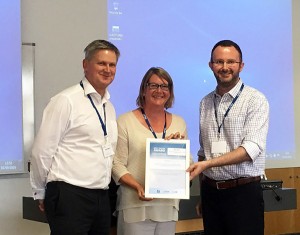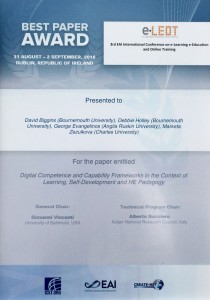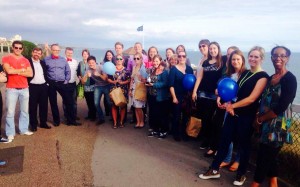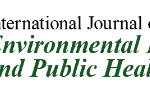
A recent report published by the ESRC shows that social scientists are becoming increasingly engaged through their research. This is testament to how the knowledge exchange agenda has become embedded and been embraced. That said, what disciplines are involved varies, as does who they are engaging with. It is also striking, if not entirely unsurprising, that social scientists are more likely to engage with charitable and public sector organisations (49%) than with businesses (30%).
There are, of course, many reasons for this. However, it is important to emphasise that this is not for a lack of relevant insight! Indeed, this raises an important question about how the social sciences can and should engage with businesses to realise the impact of research-based insights. If opportunities for businesses engagement are in the eye of the beholder, then there is a need to make social scientists more aware about the possibilities. If we cannot identify our own value, we cannot expect others to see it.
Engaging with business is not the privileged domain of engineering and the sciences. The challenge, however, is ensuring that the value of the social sciences is not overlooked by businesses, or worse goes unrecognised. The onus, therefore, is on social scientists to demonstrate the relevance of their research to business, just as they have to charitable and public sector organisations. This is about translation, making research insights accessible where the findings are non-obvious and engaging with businesses to co-produce new knowledge.
Click here to find out more about this research and the academics involved in this area of work.
 Public Health England has launched a
Public Health England has launched a  On Wednesday, 19th October 2016, BU’s Global Engagement team (as part of the new Research Knowledge Exchange Development Framework) will be facilitating a Sandpit event on Global Challenges, attended by staff from the DFID and other organisations.
On Wednesday, 19th October 2016, BU’s Global Engagement team (as part of the new Research Knowledge Exchange Development Framework) will be facilitating a Sandpit event on Global Challenges, attended by staff from the DFID and other organisations.







 Membership vacancies
Membership vacancies











 BU paper among top 20 most cited papers
BU paper among top 20 most cited papers Nepal migrant workers returning from India
Nepal migrant workers returning from India New BU midwifery publication
New BU midwifery publication MSCA Postdoctoral Fellowships 2025 Call
MSCA Postdoctoral Fellowships 2025 Call ERC Advanced Grant 2025 Webinar
ERC Advanced Grant 2025 Webinar Horizon Europe Work Programme 2025 Published
Horizon Europe Work Programme 2025 Published Horizon Europe 2025 Work Programme pre-Published
Horizon Europe 2025 Work Programme pre-Published Update on UKRO services
Update on UKRO services European research project exploring use of ‘virtual twins’ to better manage metabolic associated fatty liver disease
European research project exploring use of ‘virtual twins’ to better manage metabolic associated fatty liver disease